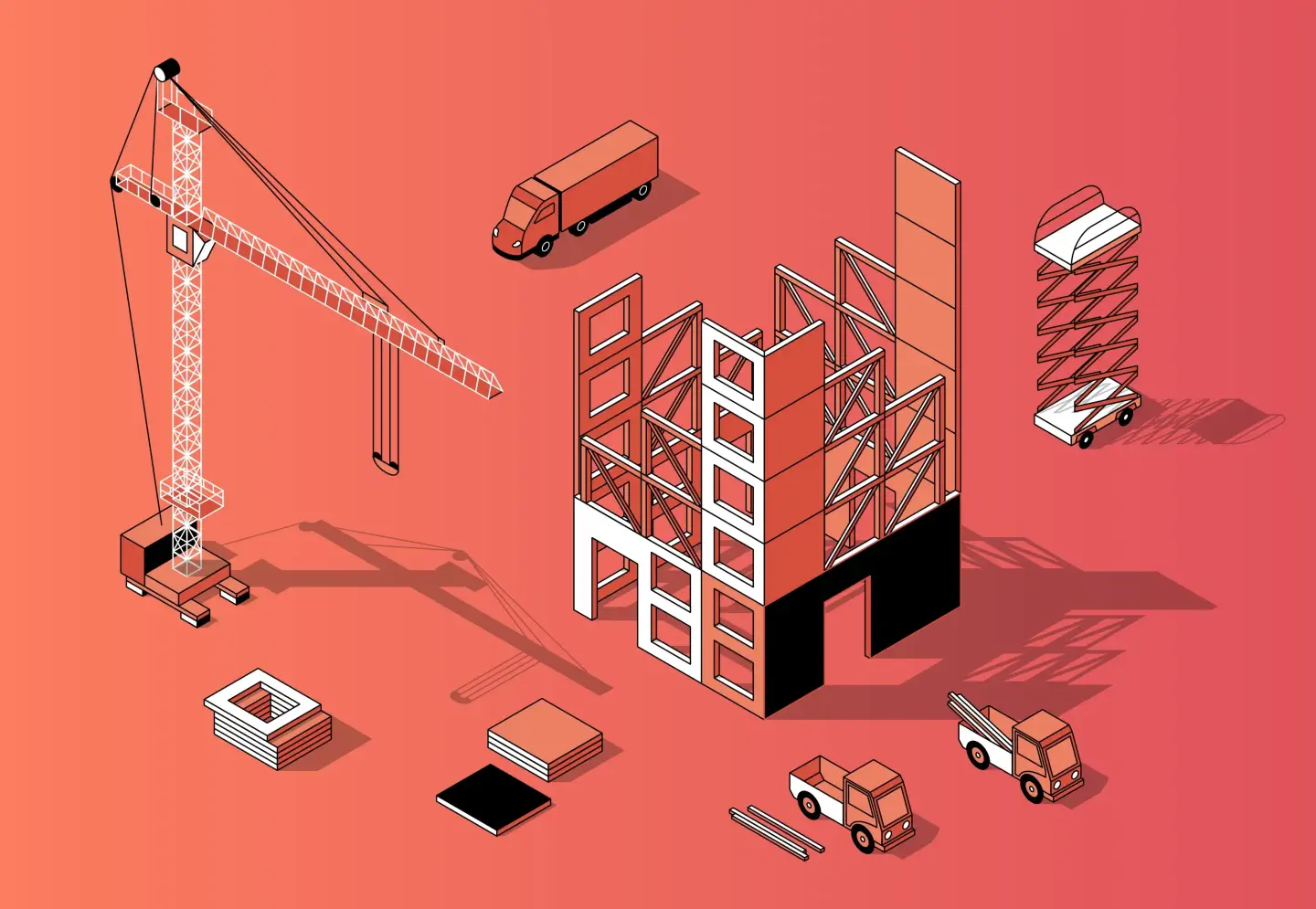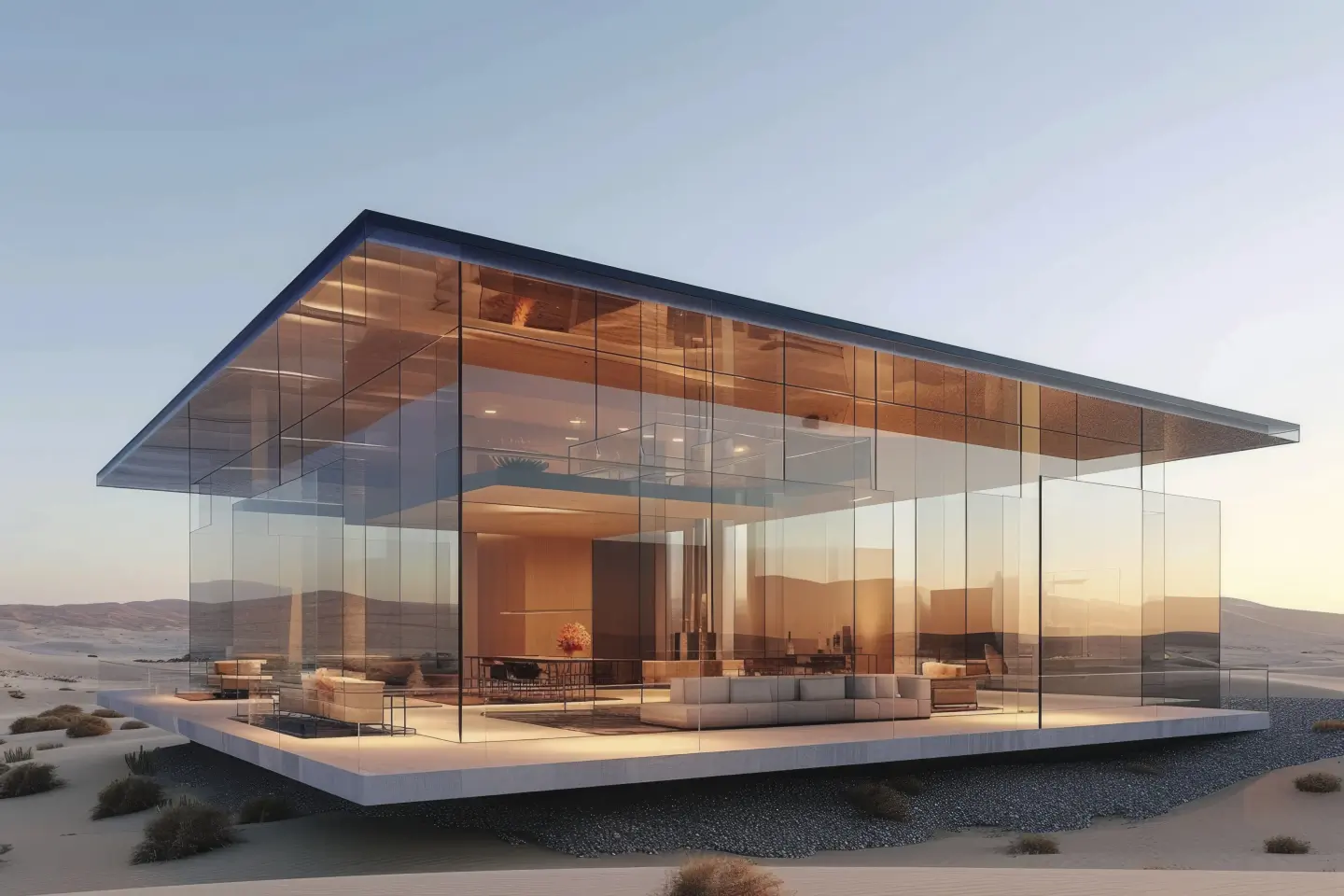Modular Construction: The Complete Guide to Faster, Efficient Building in 2025
The construction industry is experiencing a revolutionary shift toward modular construction, a method that's transforming how we approach building projects across the United States. As traditional construction faces challenges with labor shortages, rising costs, and extended timelines, modular building emerges as a game-changing solution that delivers projects up to 50% faster while maintaining superior quality standards.

What is Modular Construction?
Modular construction is an innovative building method where structures are manufactured off-site in controlled factory environments, then transported and assembled at the final location. Unlike traditional stick-built construction, this approach utilizes prefabricated modules that are constructed simultaneously with site preparation, dramatically reducing overall project timelines.
This construction methodology encompasses various approaches including permanent modular construction (PMC), relocatable buildings, and hybrid modular systems. Each type serves specific project needs while delivering the core benefits of factory-controlled manufacturing and accelerated installation.
The Evolution of Modular Building
The history of modular building dates back to the 1830s when London carpenter John Manning created the first recorded prefabricated house. The method gained significant momentum during World War II with the invention of prefab houses for rapid post-war reconstruction. Today's modular building has evolved into a sophisticated construction solution that addresses modern building challenges while meeting stringent building codes and architectural standards.
Key Advantages of Modular Building Methods
Accelerated Project Timelines
Modular construction delivers time savings of 30-60% compared to traditional building methods. By manufacturing modules in factories while site work progresses simultaneously, projects can be completed in approximately half the normal timeframe. This acceleration is crucial for developers facing tight deadlines and market pressures.
Superior Quality Control
Factory-controlled environments eliminate weather-related delays and provide consistent working conditions that enhance quality outcomes. Each module undergoes rigorous inspection before leaving the manufacturing facility, resulting in superior craftsmanship compared to field-built alternatives.
Cost Effectiveness
Modular building offers significant cost advantages through:
Reduced labor costs (15-25% savings possible)
Minimized material waste (up to 90% waste reduction)
Elimination of weather delays
Streamlined project management
Bulk purchasing power for materials
Enhanced Safety Standards
Manufacturing in controlled factory environments significantly reduces workplace accidents compared to traditional construction sites. Workers operate in climate-controlled conditions with proper safety equipment and standardized procedures.
Environmental Sustainability
The modular building process promotes sustainability through reduced material waste, energy-efficient manufacturing processes, and the ability to incorporate recycled materials. The precision manufacturing also enables better insulation and energy performance in the finished structure.

Types of Modular Building Systems
Permanent Modular Construction (PMC)
PMC involves creating complete building solutions using prefabricated modules designed for permanent installation. These structures meet all local building codes and can be single or multi-story buildings suitable for residential, commercial, or institutional use.
Relocatable Buildings
Relocatable modular buildings offer flexibility for temporary or changing needs. These structures can be disassembled, moved, and reconfigured at different locations, making them ideal for construction site offices, temporary classrooms, or seasonal facilities.
Hybrid Modular Systems
This approach combines modular components with traditional construction methods, allowing for customized solutions that leverage the benefits of both methodologies.
Applications of Modular Building
Modular construction serves diverse market segments including:
Residential Projects: Single-family homes, multi-family housing, and apartment complexes
Commercial Buildings: Office buildings, retail spaces, and hospitality structures
Healthcare Facilities: Medical offices, clinics, and hospital expansions
Educational Buildings: Schools, universities, and training facilities
Industrial Applications: Manufacturing facilities and warehouse spaces
Challenges and Considerations
While modular building offers numerous advantages, project stakeholders should consider potential challenges:
Transportation Limitations
Module size constraints due to transportation requirements may influence design decisions. Projects must account for delivery logistics and site accessibility.
Local Code Variations
Building codes vary by jurisdiction, requiring customization for each market. However, experienced modular manufacturers navigate these requirements effectively.
Upfront Planning Requirements
Modular building demands detailed planning and design finalization earlier in the project timeline compared to traditional construction.
This early planning also helps streamline residential and apartment complex financing by giving lenders clear timelines, cost projections, and reduced risk.
The Role of Skilled Labor in Modular Projects
The success of modular building projects depends heavily on skilled tradespeople who understand both traditional construction techniques and modular assembly processes. FlexCrew specializes in providing experienced craftsmen who excel in modular environments, ensuring your projects benefit from:
Factory-trained installation specialists
Quality control experts familiar with modular standards
Efficient assembly teams that minimize on-site time
Experienced supervisors who understand modular project flow
Future of Modular Building
The modular building industry continues evolving with technological advances including:
Building Information Modeling (BIM) integration
Automated manufacturing processes
Smart building technology incorporation
Sustainable material innovations
Industry experts predict continued growth as more developers recognize the advantages of modular building methods for addressing housing shortages and construction efficiency challenges.
Why Choose FlexCrew for Modular Construction Staffing
Modular construction demands more than just general building experience — it requires professionals who understand the precision, timing, and technical coordination involved. FlexCrew connects construction companies with experienced tradespeople who specialize in modular builds, from accurate module placement to seamless integration of mechanical and electrical systems.
Whether you're working on residential housing, commercial developments, or industrial facilities, our workforce is equipped to handle the specific requirements of modular assembly and finishing. With FlexCrew, you get reliable access to skilled labor that helps you stay on schedule and meet quality standards.
Conclusion
Modular construction represents the future of efficient building, offering unprecedented speed, quality, and cost advantages over traditional construction methods. As the industry continues growing, the demand for skilled professionals who understand modular building processes will only increase.
For developers, contractors, and project managers considering modular building for their next project, partnering with FlexCrew ensures access to the specialized labor force necessary for successful modular project completion. Our commitment to quality and efficiency aligns perfectly with the modular building philosophy of delivering superior results in compressed timeframes.
Frequently Asked Questions About Modular Construction
What is modular construction and how does it work?
Modular construction is a building method where structures are manufactured off-site in factory-controlled environments, then transported and assembled at the final location. The process involves creating prefabricated modules that are built simultaneously with site preparation work, reducing overall construction time by 30-60%.
How much faster is modular building compared to traditional construction?
Modular building can be completed in approximately half the time of traditional construction methods, with documented time savings of 30-60%. This acceleration comes from simultaneous manufacturing and site preparation, plus the elimination of weather delays.
Is modular building more cost-effective than traditional construction?
Yes, modular building typically offers 15-25% cost savings through reduced labor costs, minimized material waste (up to 90% reduction), elimination of weather delays, and improved project efficiency. The controlled manufacturing environment also reduces the likelihood of cost overruns.
What types of buildings can use modular construction methods?
Modular construction is suitable for residential homes, multi-family housing, commercial buildings, healthcare facilities, educational institutions, and industrial structures. The method works for both single-story and multi-story buildings up to several floors high.
Does modular building meet the same building codes as traditional construction?
Yes, modular building must comply with all local building codes and standards. Modular buildings often exceed code requirements due to the additional structural reinforcement needed for transportation and the quality control measures implemented in factory settings.
Where can I find skilled workers for modular projects in the US?
FlexCrew provides access to experienced craftsmen specializing in modular building across the United States. Our network includes factory-trained installation specialists, quality control experts, and experienced supervisors who understand modular project requirements and timelines.
What are the main challenges with modular building?
The primary challenges include transportation size constraints, the need for detailed upfront planning, potential customization requirements for local codes, and ensuring proper site preparation for module delivery. However, experienced teams can effectively manage these considerations.
Can modular buildings be customized for specific architectural designs?
Yes, modular construction supports a wide variety of architectural styles and layouts. Modern modular manufacturing can accommodate custom designs while maintaining the efficiency benefits of factory production.
How does weather affect modular building projects?
Weather has minimal impact on modular building since manufacturing occurs in climate-controlled factory environments. Only the final assembly phase may be affected by weather, but this represents a much smaller portion of the overall construction timeline compared to traditional building methods.
What should I look for when hiring contractors for modular projects?
When hiring for modular projects, look for contractors with specific modular experience, proper certifications, understanding of transportation logistics, and access to skilled labor familiar with modular assembly processes. FlexCrew specializes in connecting clients with qualified modular building professionals nationwide.